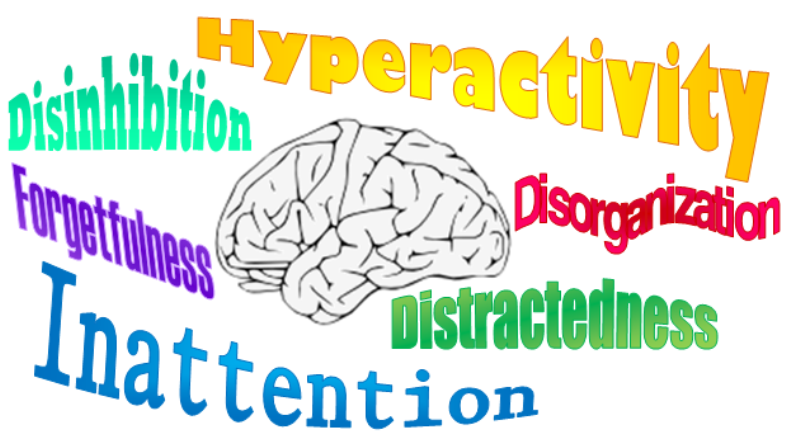Summary
– Symptoms and diagnosis of hyperactivity in children
– Causes of hyperactivity in children
– Hyperactivity in children: what treatments?
Diagnosing a child’s “ADHD” (Attention deficit hyperactivity disorder) with or without hyperactivity is not easy, as it covers different symptoms that may be present in a child to varying degrees.
How to spot and diagnose ADHD, and who to consult if you suspect your child has this disorder? This post provides you with the answers to your questions.
Symptoms and diagnosis of hyperactivity in children
Various symptoms
Hyperactivity is a disorder that has been known for about twenty years and has long been challenging to define.
Today, we can say that hyperactivity or ADHD is characterized by:
– motor hyperactivity: the fact of constantly waking up very early, of being as if “on springs”, of being systematically agitated at bedtime;
– Attention disorders: inability to complete a task, frequent forgetfulness and distraction;
– impulsivity: systematically cutting off speech, not listening, etc.
Note: the most frequent symptom is not agitation but attention deficit, found in 47% of children diagnosed with ADHD.
Diagnostic criteria

There are diagnostic criteria that have been established for the management of these behavioral disorders in children.
These include the fact that the child often:
– avoids, dislikes, or reluctantly performs tasks that require sustained mental effort (such as schoolwork or homework);
– loses items needed for work or activities (e.g., toys, homework books, pencils, books, or tools);
– is easily distracted by external stimuli;
– is forgetful in daily life;
– seems not to listen when spoken to personally;
– fidgets with hands or feet, or squirms in seat;
– gets up in class or in other situations where they are supposed to sit still;
– running or climbing around in situations where it is inappropriate.
Good to know: not all unruly children are “ADHD”. What makes the diagnosis possible is the severity, intensity, and persistence of the symptoms for at least 6 months.
Causes of hyperactivity in children
There is no clear cause for ADHD, although it is clear that the disorder is neurological in origin.
ADHD can be related to a lack of specific brain chemicals (neurotransmitters) that help the brain organize and regulate thinking and behavior. This is probably linked to genetics, as 30-40% of people diagnosed with ADHD have family members with the same disorder (the SNAP25 gene variation is involved in neurotransmission and is associated with hyperactivity and attention disorders, among other things).
Some hypotheses also state that ADHD is favored by:
– complications during pregnancy, at birth, or shortly after birth;
– toxic chemicals in the environment;
– head trauma.
The origin and causes of the development of ADHD are still complex and unclear.
Good to know: To date, no test can diagnose ADHD. Blood tests, genetic tests, psychological tests, or brain scans cannot be used to determine whether a child has ADHD or is at risk of developing it.
Hyperactivity in children: what treatments?
There are several approaches to treating attention disorders in children, although none will result in a cure.
You should note that the cognitive, psychosocial, or medicinal approach will only attenuate the disorders to allow the child and his environment to live better with this hyperactivity.
You can therefore combine the following approaches as required and on a case-by-case basis:
– re-education and speech therapy;
– psychomotor re-education
– individual, behavioral, cognitive, and family therapy
– educational support;
– setting up a specific educational project for each child;
– implementation of specific educational methods at home;
– Medication: Medication may be prescribed when the child has ADHD that is severe enough to interfere with social and academic learning and when the child is suffering significantly as a result of the disorder.
Good to know: alternative approaches such as biofeedback, neurofeedback, hypnosis, or homeopathy can complement the treatment of ADHD.
In practice, when ADHD is suspected in a child, a neuropsychological evaluation by a psychologist is strongly recommended. It should be accompanied by a psycho-affective assessment, as the child may suffer from both ADHD and a psychological disorder (anxiety, depression, delayed emotional development). These two disorders aggravate each other, so regular psychological care of the child is necessary.
Advice: if you suspect ADHD in your child or any other attention disorder, it is necessary to talk to your doctor. Only they will be able to refer you to a specialist, who will be able to determine whether or not your child has ADHD or simply another emotional or cognitive problem.
Hope this article has been helpful. Please leave your comments below.


